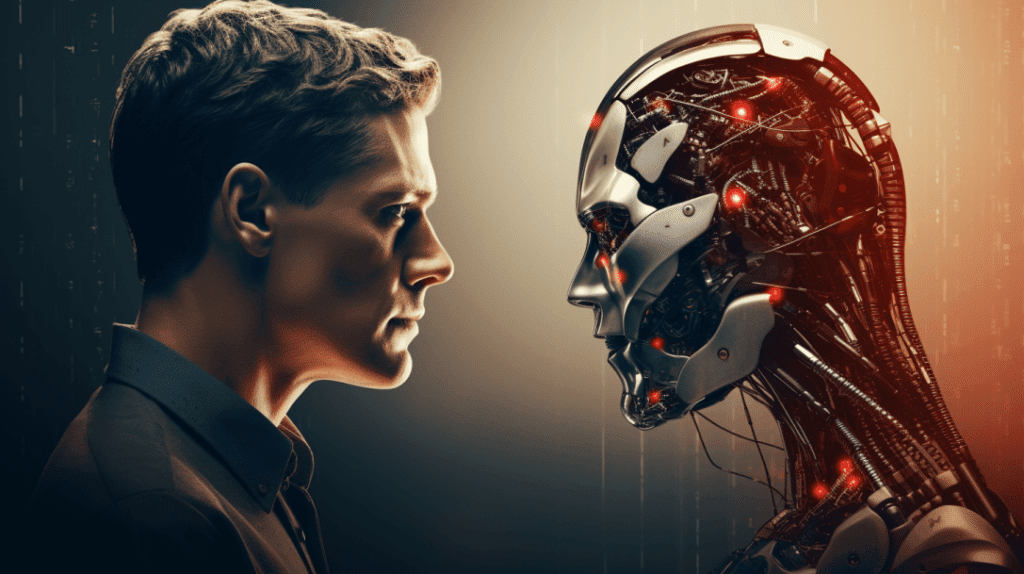Photo was created by Webthat using MidJourney
Hollywood Screenwriters Fear Losing Their Craft to AI
Hollywood screenwriter Michelle Amor and her fellow US television and film writers find themselves in a state of anxiety over the looming impact of artificial intelligence (AI) on their livelihoods. Fearing the prospect of being replaced by something artificial, they have been on strike since May, demanding strict limits on the use of AI-powered writing tools in the industry.
The Writers’ Struggle for Artistic Integrity
As the strike continues, the Writers Guild of America, the union representing the writers, insists on securing written commitments from studios and streaming giants. The primary demand is to ensure that AI is only utilized for research purposes and never as a replacement for human creativity. They argue that while jobs in other industries might be more susceptible to automation, the art of storytelling requires the human touch and emotions that AI cannot replicate.
The Rising Influence of AI in Screenwriting
One of the most surprising elements of this labor dispute is the rapid ascent of AI-powered writing tools, with ChatGPT at the forefront. Screenwriter Melissa Rundle, known for her work on TV series Kung FU and the movie Cup Of Love, expresses her shock at the capabilities of AI and its potential to disrupt the industry. While acknowledging the inevitability of AI’s presence, the writers aim to establish safeguards against exploitation by employers seeking to use AI for generating ideas and scripts.
Writers vs. Studio Executives: The Battle for Fair Compensation
Elliott Kalan, a seasoned comedian and screenwriter, highlights one of the major challenges faced by writers – the prospect of studio executives utilizing AI to generate original ideas for movies and TV series. This could lead to reduced compensation for writers and hinder their ability to contribute meaningfully to creative storytelling. The writers demand regulation on the use of AI in projects, with a clear understanding that AI cannot replace the human touch in creating or rewriting literary material.
The Creative Potential of AI-Human Collaboration
Despite the fears and concerns, some experts see the potential for AI to complement human creativity rather than replacing it entirely. Chung Xia, a founding partner at a Silicon Valley-based technology investment firm, envisions a future where sitcom writers use AI-generated scripts as a starting point for further development. The iterative process of human-AI collaboration can lead to enhanced scripts, maintaining the unique voice of the writer while benefiting from data-driven AI insights in creativity.
AI and the Entertainment Industry: A Road to Collaboration
Representatives from the Alliance of Motion Picture and Television Producers, which includes major studios and streamers, acknowledge the importance of creative work and the value of writers. They are open to exploring the integration of AI into the creative process while addressing complex issues such as copyrights and proper crediting. Both parties agree that the future lies in collaborative efforts between AI and human writers, leveraging AI’s analytical capabilities to enhance storytelling for the target audience.

